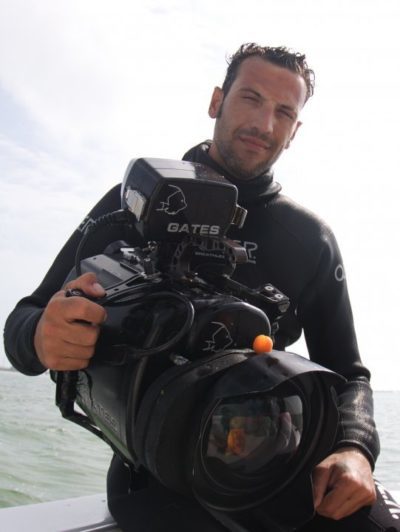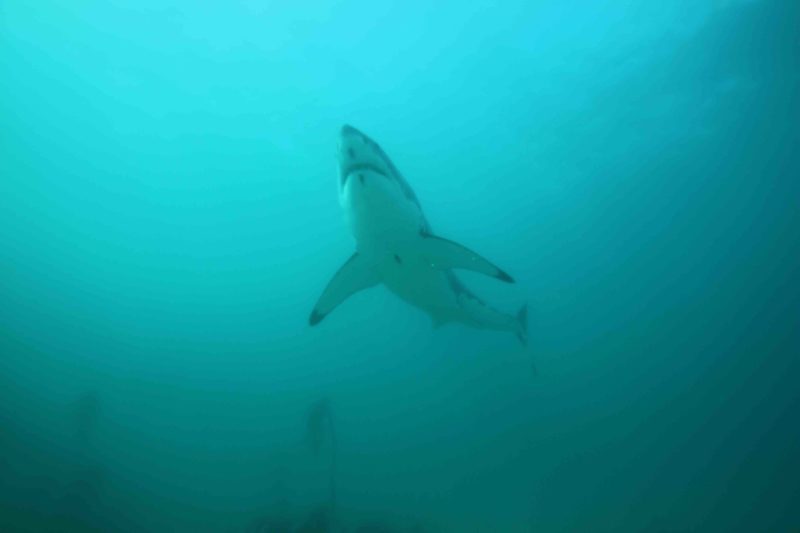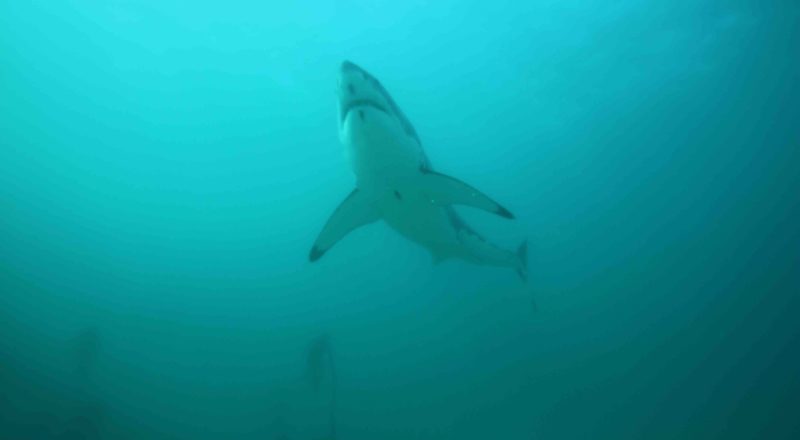INTERVIEW: Shark Week heads to remote Australian beach for ‘Shark-Croc Showdown’

Of the coolest jobs in the world, Joe Romeiro’s might beat all the rest. The naturalist and cinematographer has carved out a career heading to the far reaches of planet Earth to film some of the most interesting and intimidating shark species in the animal kingdom.
Audience members can check out Romeiro’s work on two specials during this year’s Shark Week on Discovery Channel: Shark-Croc Showdown, airing Sunday, July 23 at 9:10 p.m., and Shark Vortex, airing Monday, July 24 at 8 p.m.
Shark-Croc Showdown finds Romeiro and the team headed to a remote part of Australia to find an area where sharks and crocodiles coexist and prey on the same unfortunate animals. On the Cobourg Peninsula of the Northern Territory, Romeiro was able to capture some breathtaking footage that has never been seen on television.
On Shark Vortex, Romeiro sticks closer to his New England roots and documents three shark species that swim in the Gulf Stream all the way up to Rhode Island and Massachusetts in the summertime. Whether it’s makos, great whites or porbeagles, the animals all pose for the camera and make for some engaging television.
“Shark-Croc Showdown is honestly one of the most interesting stories that I’ve ever really been a part of,” Romeiro said in a recent phone interview. “There really hasn’t been anybody allowed in that area really ever. There’s only like 26 people, I think, allowed there annually, and we really get to look at this area where these two animals coexist and are basically hunting the same food sources.”
The cinematographer promised new camera angles that allow for unique vantage points of shark behavior. “It’s just one of those experiences I’ll never be able to relive,” he said. “I would say that you can expect new technology, new filming techniques, never-before-seen footage and honestly a very strange place in the world. This is really like as far out as we can really go. This was the Australian outback. It was insane.”
Romeiro was out on the Cobourg Peninsula with Dr. Mark Meekan and conservationist Paul de Gelder for approximately three weeks, although the entire crew was filming for six weeks. They lived on the beach, and Romeiro was immediately impressed by de Gelder’s fortitude.
“This guy is an ex-military diver, so we’re like leaping [off] the beach after day six,” he said. “You’re starting to get edgy because you’re all around crocodiles and all this stuff, and he’s totally fine. He’s just living it up.”
Discovery Channel’s annual Shark Week is one of the most anticipated TV weeks of the year. It’s essentially the Super Bowl of natural-history programming, and this year, Olympic swimmer Michael Phelps is helping to kick off the festivities.

For most audience members, the reason to tune in is likely because sharks continue to amaze and confound anyone who has dipped a toe in the ocean. They elicit reactions of awe and fear, and that makes for good television.
“Sharks exist in almost every continent of the world,” Romeiro said. “Australia is definitely one of the … large bucket-list places that I’ve always wanted to go, and explore and do stuff, but I really wanted to … go into an area where there was nobody. We would go out and just walk for miles and miles. It was like a nine-hour drive to the nearest settlement of people, and there were monsoons going on. So we were completely cut off. The only way in or out was by boat or helicopter, so there was something about that continent that … just seemed very prehistoric. So there still are those places in the world, and I think Australia and South Africa, they have geographic uniqueness about them where these things really shine forth.”
As far as Shark Vortex, here’s what Romeiro had to say: “Well, there’s an annual event that happens here in New England, and it all takes place throughout Rhode Island [and] up. So Cape Cod is on that scope, but it centers around really a small group of sharks. Out of 500 different species of sharks, there are only five warm-blooded species of sharks. Most sharks are cold-blooded. … There’s an annual event here that happens every year, and it draws three of the very small group of warm-blooded sharks out of 500 different species. And we examine those three, and through that process, we find some incredible facts and some incredible new stuff.”
This is a profession and passion for Romeiro that would likely win a Coolest Career Contest. “It’s kind of like what they say with combat,” he said. “It’s hours and hours of boredom followed by seconds of sheer terror. It’s more excitement than anything. You’ve got this exhilaration of trying to get an animal that might only be around for a few minutes.”
By John Soltes / Publisher / John@HollywoodSoapbox.com
Shark Week begins Sunday, July 23. Joe Romeiro’s two programs are Shark-Croc Showdown, premiering Sunday, July 23 at 9:10 p.m., and Shark Vortex, premiering Monday, July 24 at 8 p.m. Click here for more information.

